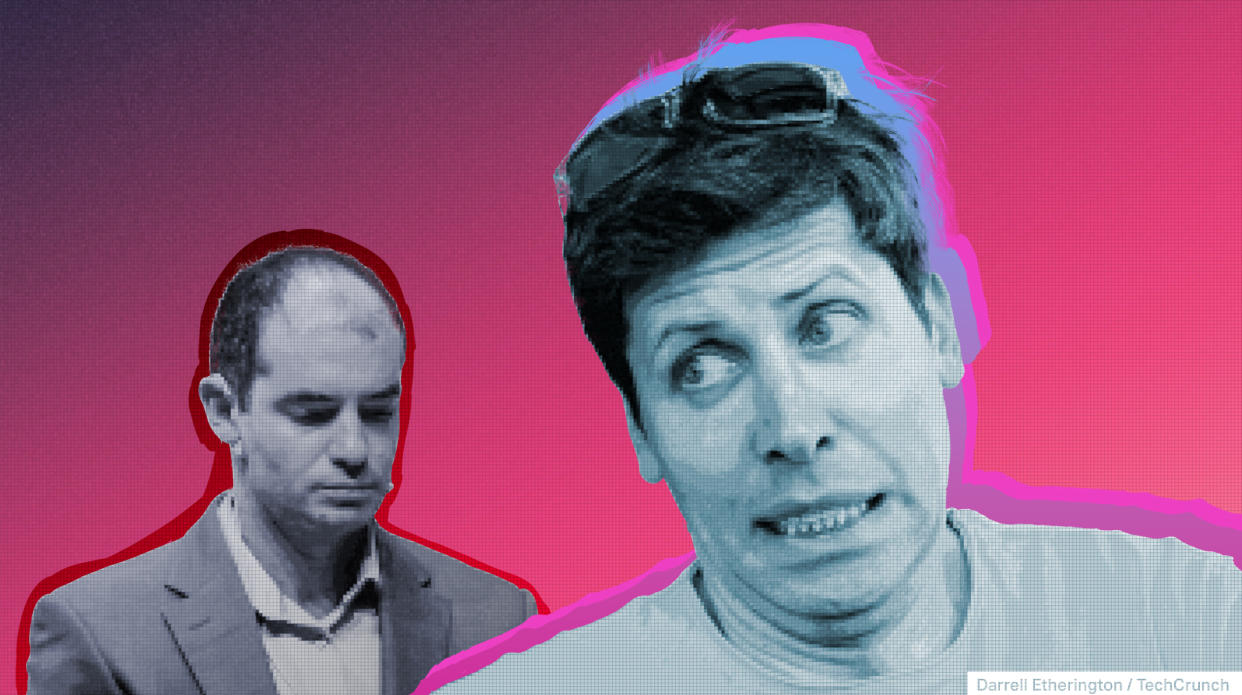OpenAI created a team to control 'superintelligent' AI — then let it wither, source says

OpenAI's Superalignment team, responsible for developing ways to govern and steer "superintelligent" AI systems, was promised 20% of the company's compute resources, according to a person from that team. But requests for a fraction of that compute were often denied, blocking the team from doing their work.
That issue, among others, pushed several team members to resign this week, including co-lead Jan Leike, a former DeepMind researcher who, while at OpenAI, was involved with the development of ChatGPT, GPT-4 and ChatGPT's predecessor, InstructGPT.
Leike went public with some reasons for his resignation on Friday morning. "I have been disagreeing with OpenAI leadership about the company's core priorities for quite some time, until we finally reached a breaking point," Leike wrote in a series of posts on X. "I believe much more of our bandwidth should be spent getting ready for the next generations of models, on security, monitoring, preparedness, safety, adversarial robustness, (super)alignment, confidentiality, societal impact, and related topics. These problems are quite hard to get right, and I am concerned we aren't on a trajectory to get there."
https://twitter.com/janleike/status/1791498183543251017
OpenAI did not immediately return a request for comment about the resources promised and allocated to that team.
OpenAI formed the Superalignment team last July, and it was led by Leike and OpenAI co-founder Ilya Sutskever, who also resigned from the company this week. It had the ambitious goal of solving the core technical challenges of controlling superintelligent AI in the next four years. Joined by scientists and engineers from OpenAI’s previous alignment division, as well as researchers from other orgs across the company, the team was to contribute research informing the safety of both in-house and non-OpenAI models and, through initiatives including a research grant program, solicit from and share work with the broader AI industry.
The Superalignment team did manage to publish a body of safety research and funnel millions of dollars in grants to outside researchers. But, as product launches began to take up an increasing amount of OpenAI leadership's bandwidth, the Superalignment team found itself having to fight for more upfront investments -- investments it believed were critical to the company's stated mission of developing superintelligent AI for the benefit of all humanity.
"Building smarter-than-human machines is an inherently dangerous endeavor," Leike continued. "But over the past years, safety culture and processes have taken a backseat to shiny products."
Sutskever's battle with OpenAI CEO Sam Altman served as a major added distraction.
Sutskever, along with OpenAI's old board of directors, moved to abruptly fire Altman late last year over concerns that Altman hadn't been "consistently candid" with the board's members. Under pressure from OpenAI's investors, including Microsoft, and many of the company's own employees, Altman was eventually reinstated, much of the board resigned and Sutskever reportedly never returned to work.
According to the source, Sutskever was instrumental to the Superalignment team -- not only contributing research but also serving as a bridge to other divisions within OpenAI. He would also serve as an ambassador of sorts, impressing upon key OpenAI decision-makers the importance of the team's work.
After Leike's departure, Altman wrote on X that he agreed there is "a lot more to do," and that they are "committed to doing it." He hinted at a longer explanation, which co-founder Greg Brockman supplied Saturday morning:
https://twitter.com/gdb/status/1791869138132218351
Though there is little concrete in Brockman's response as far as policies or commitments, he said that "we need to have a very tight feedback loop, rigorous testing, careful consideration at every step, world-class security, and harmony of safety and capabilities."
Following the departures of Leike and Sutskever, John Schulman, another OpenAI co-founder, has moved to head up the type of work the Superalignment team was doing, but there will no longer be a dedicated team -- instead, it will be a loosely associated group of researchers embedded in divisions throughout the company. An OpenAI spokesperson described it as "integrating [the team] more deeply."
The fear is that, as a result, OpenAI's AI development won't be as safety-focused as it could've been.
We're launching an AI newsletter! Sign up here to start receiving it in your inboxes on June 5.

